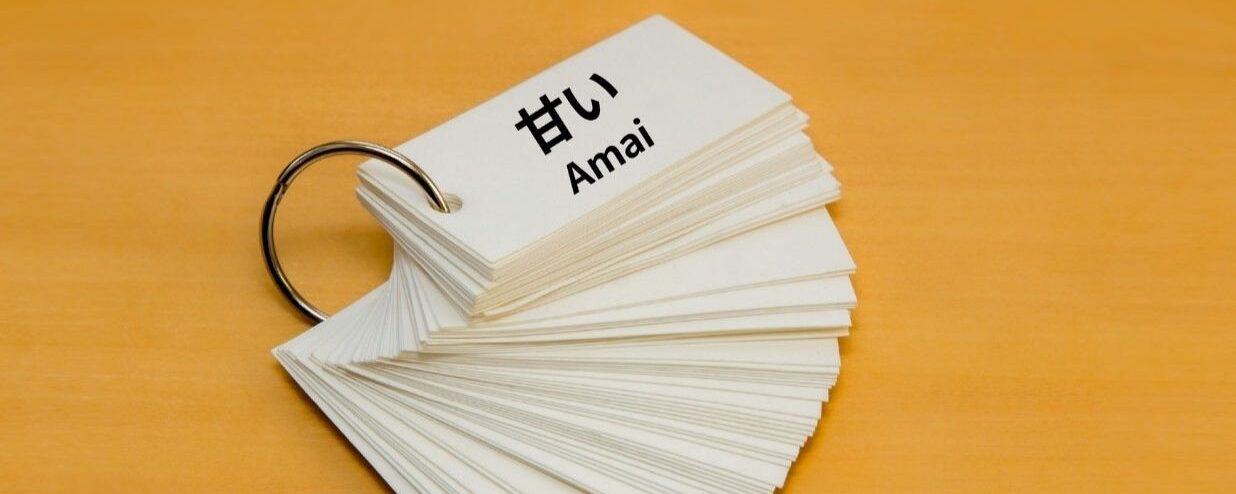Did you know that in the Japanese language, there are many words with multiple meanings? These words can come across very differently depending on the situation you use them in!
In this blog article, we will be sharing with you 10 Japanese words that have multiple meanings, some of which you might even find very familiar too!
1. はい Hai
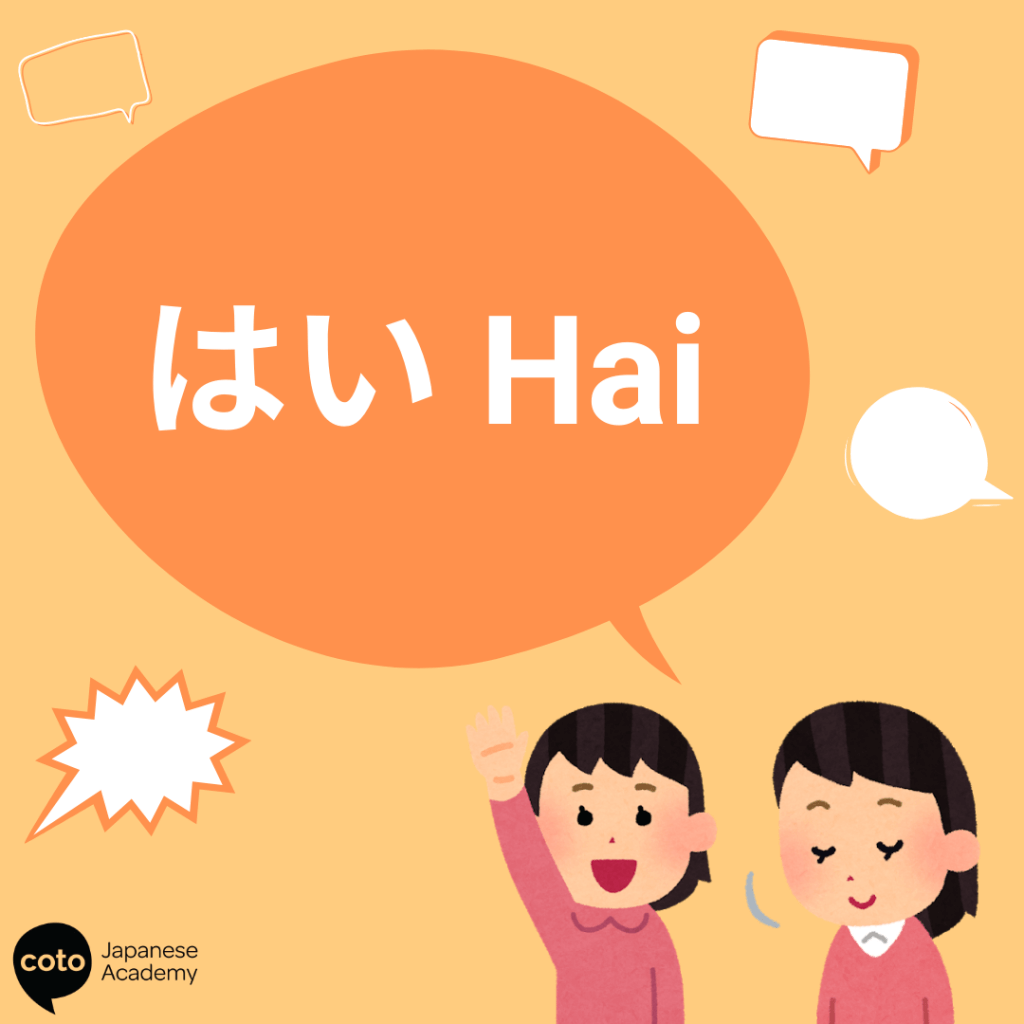
はい Hai literally means “yes” in English.
Everywhere you go in Japan, you can hear people saying “はい, はい” (hai, hai) when talking to others. In this case, the other meaning of はい (hai) is “I understand what you are saying” or simply put, being “affirmative”. This links with Aizuchi, which are Japanese conversational interjections, to show active listening. When はい (hai) is used in a conversation, it shows that the listener has attention and interest towards the speaker. Hence, saying はい (hai) does not always necessarily mean that you are agreeing with the other person, but just confirming what they said!
2. 難しい Muzukashii
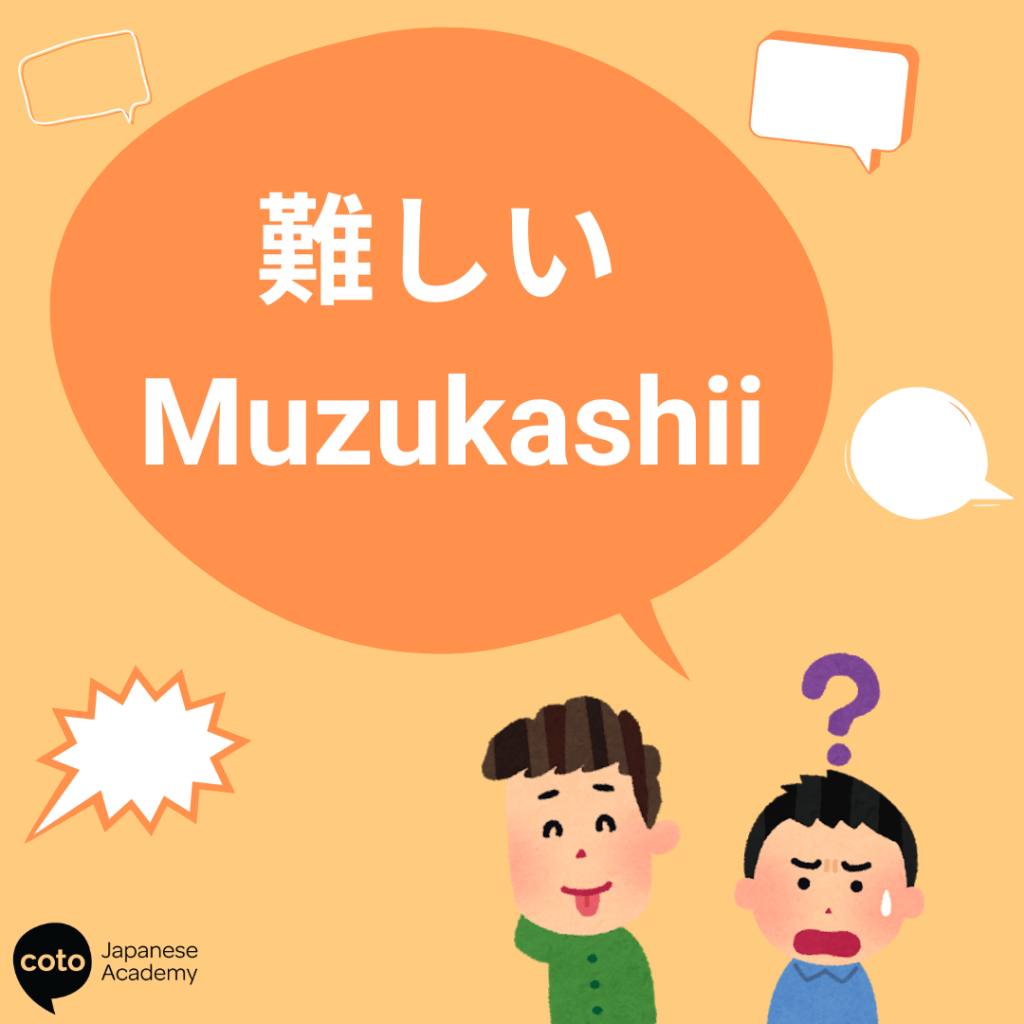
難しい (Muzukashii) means “difficult” in English.
難しい (Muzukashii) can also be used as a way to refuse someone politely when they ask you to do something. Instead of being straightforward to reject, you can use “難しいですね” to tell the other person ambiguously that you are reluctant.
Sentence Example:
A: 貴社での就職を手伝ってくれませんか? Kishadeno shushoku o tetsudattekuremasenka?
(Could you help me get the job at your company?)
B: 難しいですね.. Muzukashii desune..
(No I can’t..)
3. 結構 Kekkou
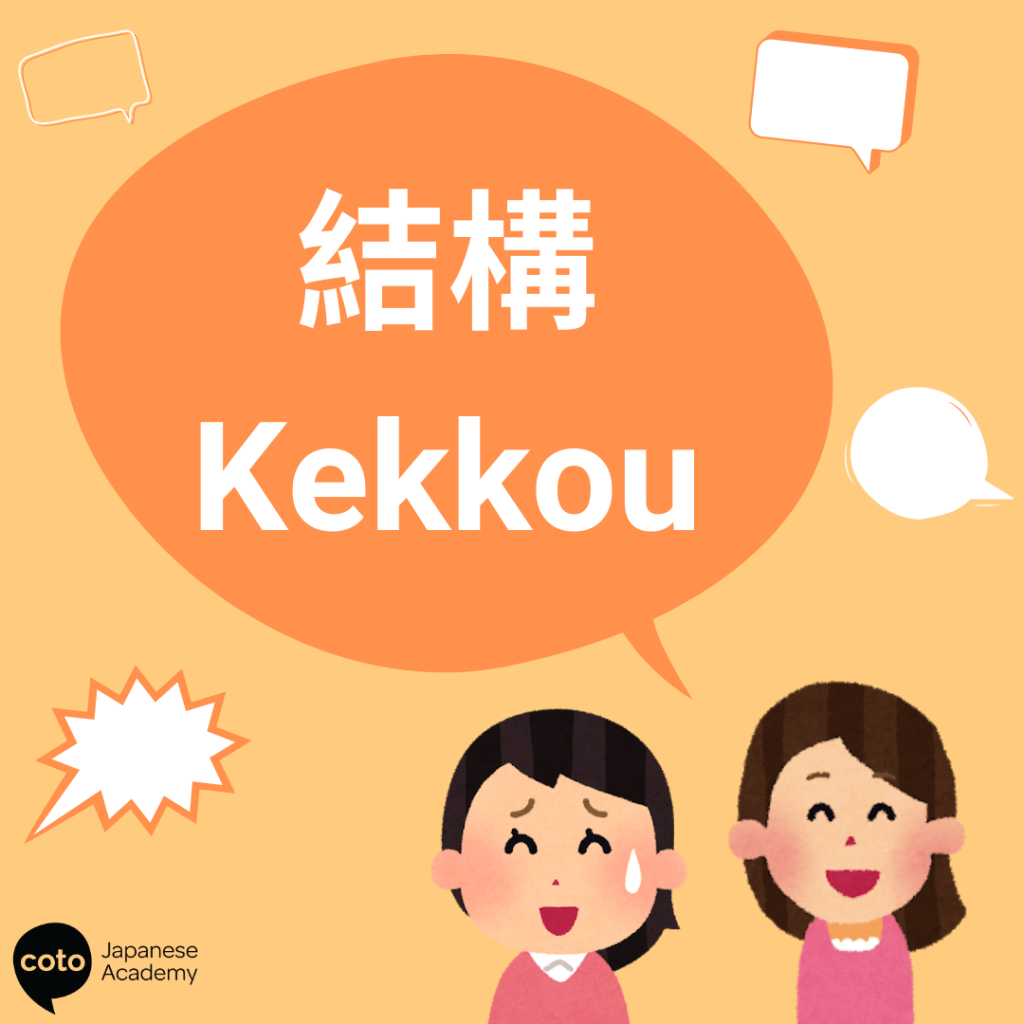
When you search up the meaning of 結構 (kekkou), you may find yourself with a few definitions, such as “wonderful; nice”, “enough” and “quite; reasonably”. 結構 (kekkou) can be used in many ways, and the meaning can also vary depending on the tone of your voice!
When you want to describe something as “wonderful; nice”, you can say 結構です (kekkou desu).
Another way to use 結構 (kekkou) is when saying no to someone. For example, when someone offers to pour you a drink, you can say 結構です(kekkou desu), meaning “No, thank you, I’ve had enough”.
One other common way to use 結構 (kekkou) is “quite” or “reasonably”. If you want to say that something was quite fun, you can say 結構楽しかった (kekkou tanoshikatta).
4. どうも Doumo
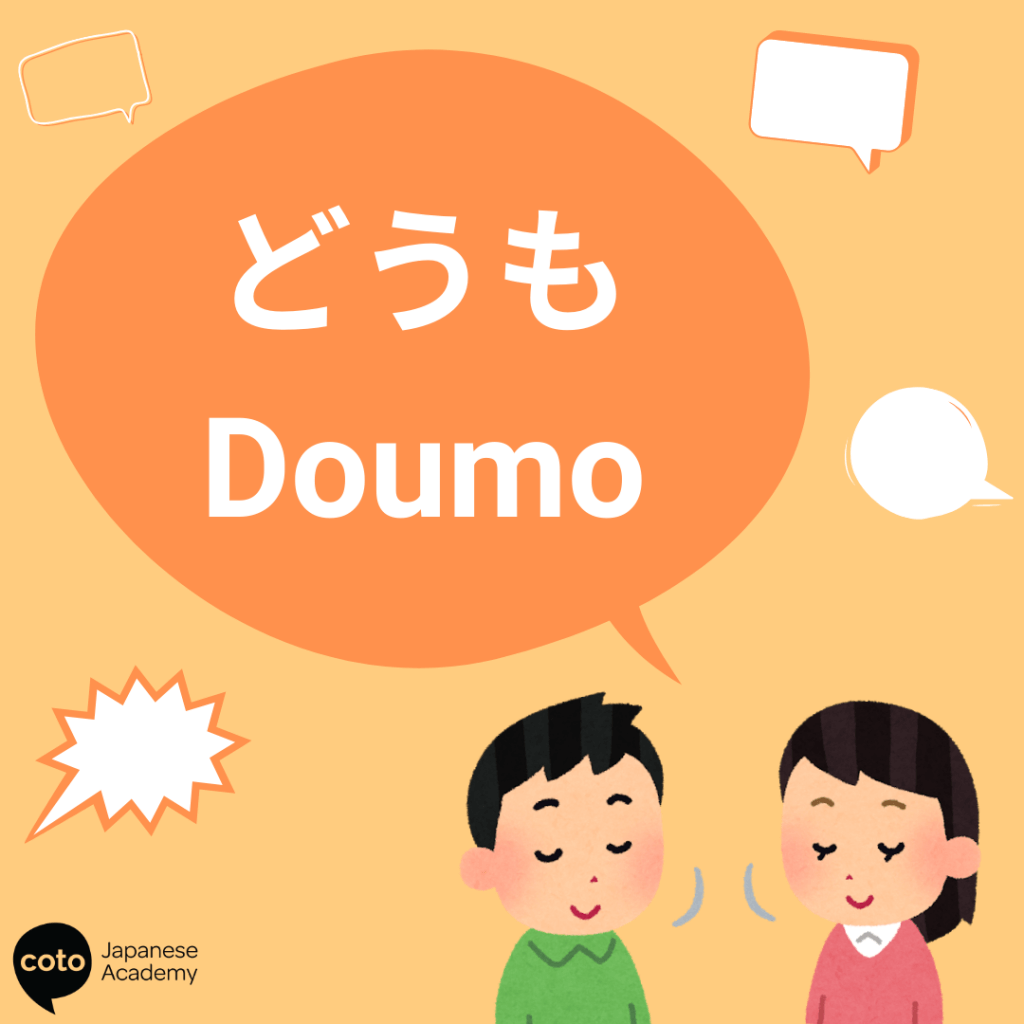
どうも (Doumo) is a versatile word that can be used in many ways. It can be used to stress your feelings, whether it is for appreciating or apologizing.
どうも (doumo) can be used as an informal way of saying “hello”, “goodbye”, “thank you”, “sorry” and “very”.
Sentence Examples:
1) To use as “hello” or “goodbye” or “glad to meet you”: どうも Doumo
2) To use as “thank you”: どうもありがとう。 Doumo arigato.
3) To use as “sorry”: どうもすみません。 Doumo sumimasen.
5. ちょっと Chotto
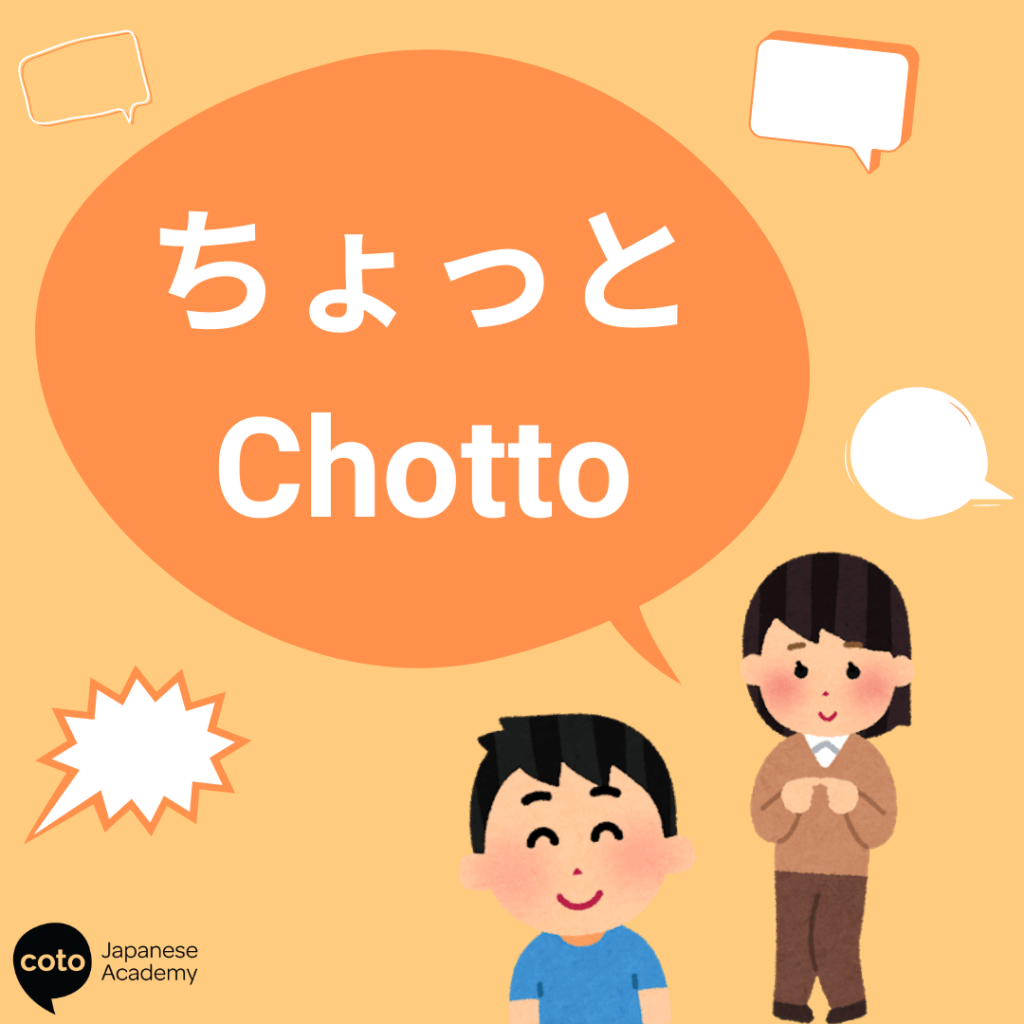
ちょっと (Chotto) is one of the most useful words in the Japanese language that has a wide range of meanings.
ちょっと (Chotto) literally means “a little” in English. It can also mean “a while; a moment” and “rather; pretty”. You can use ちょっと (Chotto) in a situation when something is not easy for you and you want to say no in an ambiguous way.
Sentence Examples:
ちょっとだけ日本語が話せる。Chotto dake nihongoga hanaseru.
(I speak Japanese a little.)
ちょっと待って下さい!Chotto matte kudasai!
(Please wait for a moment!)
昨日のテストちょっと難しかったよ。Kinou no tesuto chotto muzukashikattayo.
(Yesterday’s test was rather difficult)
A: 昼ご飯を一緒に食べませんか?Hirugohan o isshoni tabemasenka?
(Do you want to eat lunch together?)
B: 用事があるので、ちょっと。。。Youji ga aru node, chotto…
(I have some things to do so…)
6. やばい Yabai
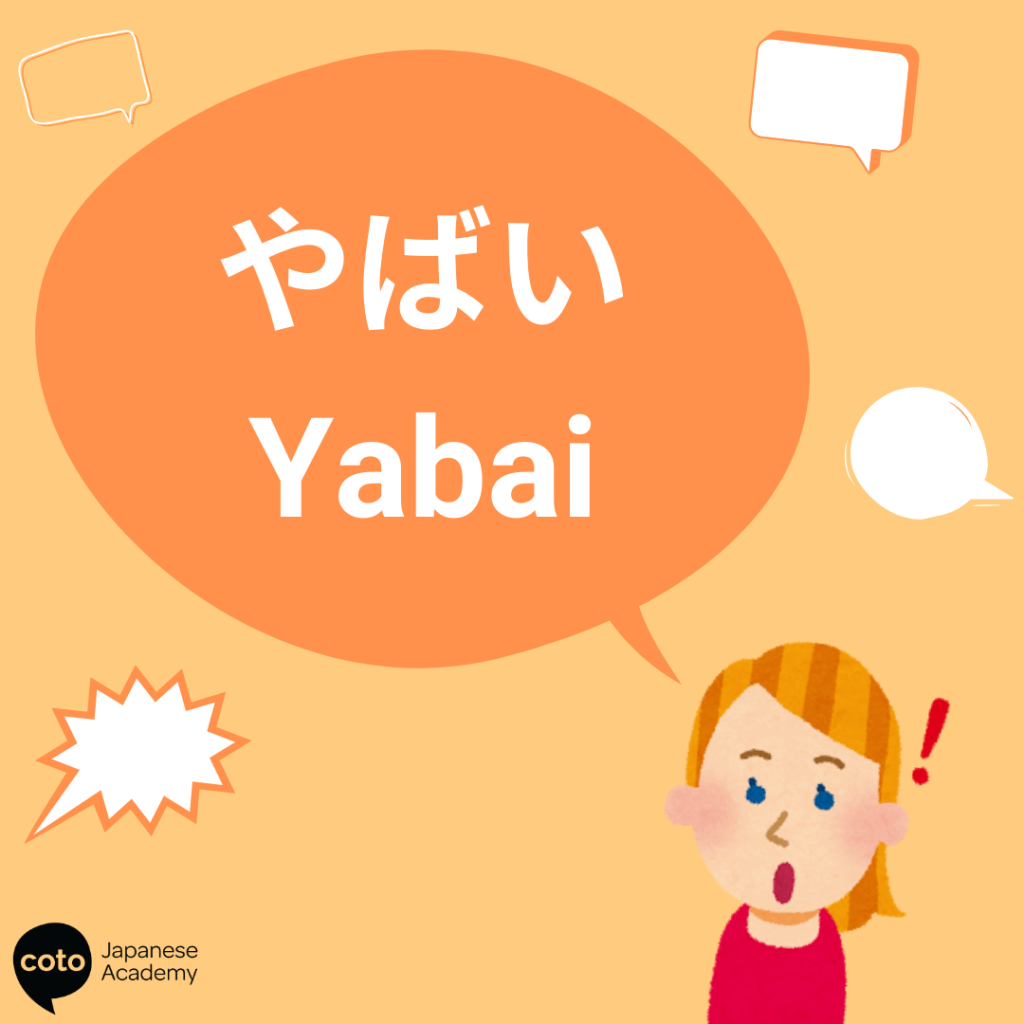
やばい (Yabai) originally means “dangerous” and is used to mean “Look out!” or “Heads up!”. Now, やばい (Yabai) is more commonly known as a slang word that is used for just about anything, positive or negative. It can mean ‘Shoot!’ or ’super’ when describing something.
Sentence Examples:
この携帯電話やばい高いよね?Kono keitai denwa yabai takai yone?
(This mobile phone is super expensive, don’t you think so?)
やばい!バスにのりお売れる!Yabai! Basuni noriokureru!
(Shoot! I’m going to miss the bus!)
7. 甘い Amai
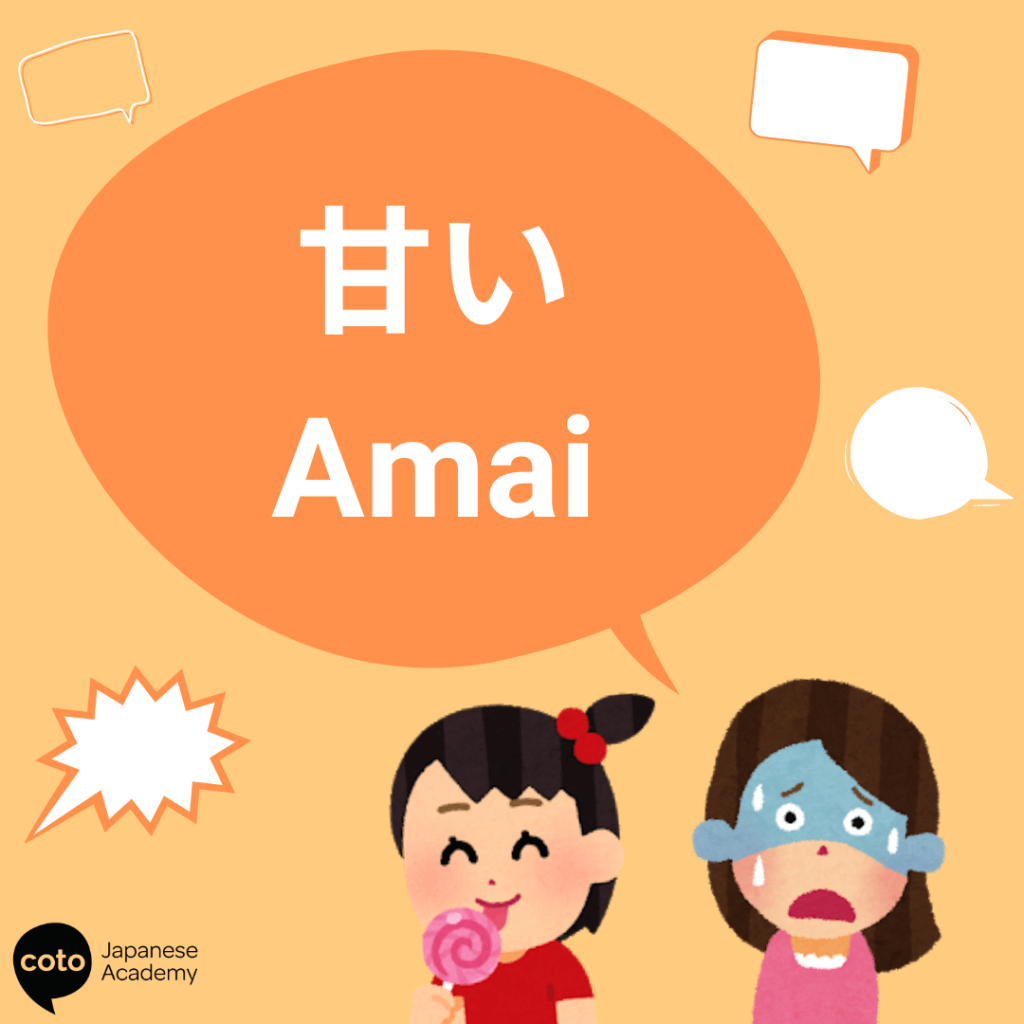
甘い (Amai) means “sweet” in English and is used to describe food. Another meaning of 甘い (Amai) is “naive”, which you can use to describe a person!
8. しろ Shiro
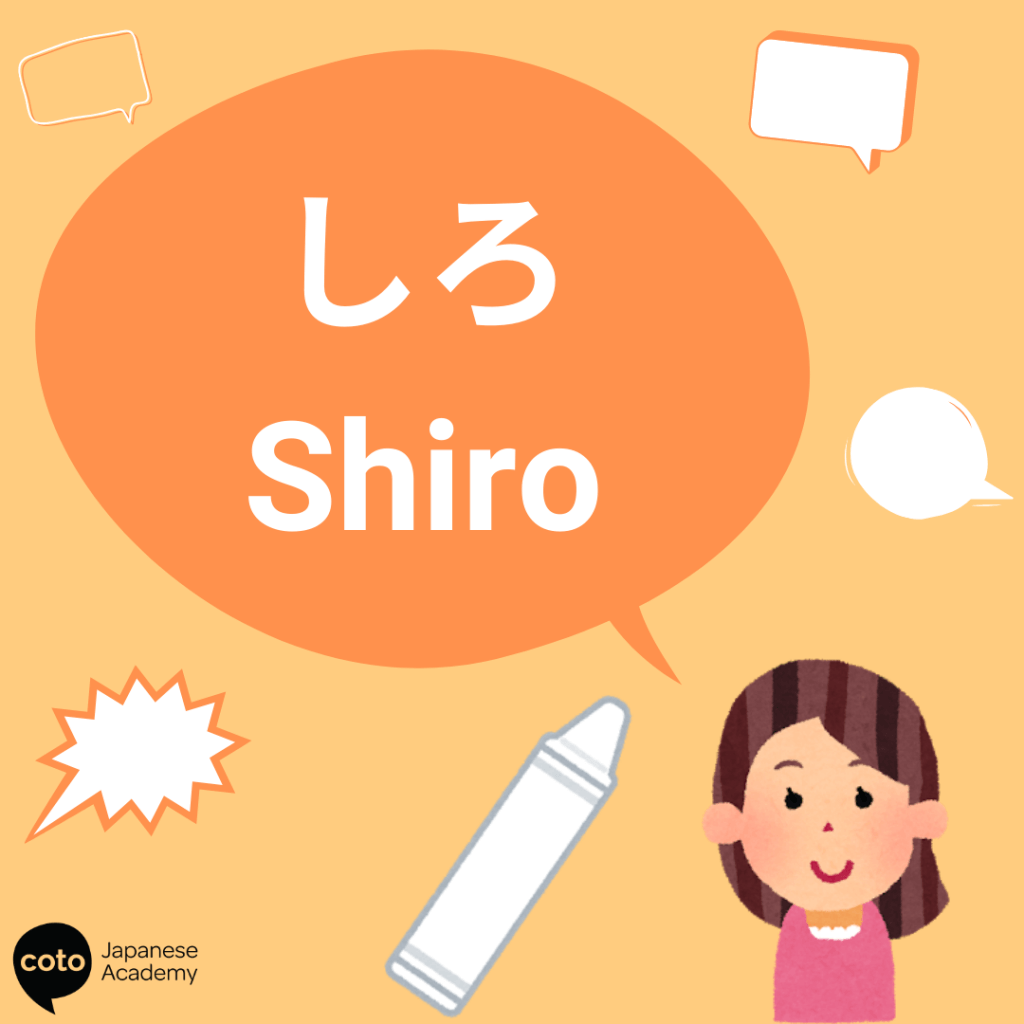
しろ (Shiro) means “white” in English.
You can also use しろ (Shiro) to describe someone who is “pure” or “innocent”.
9. くろ Kuro
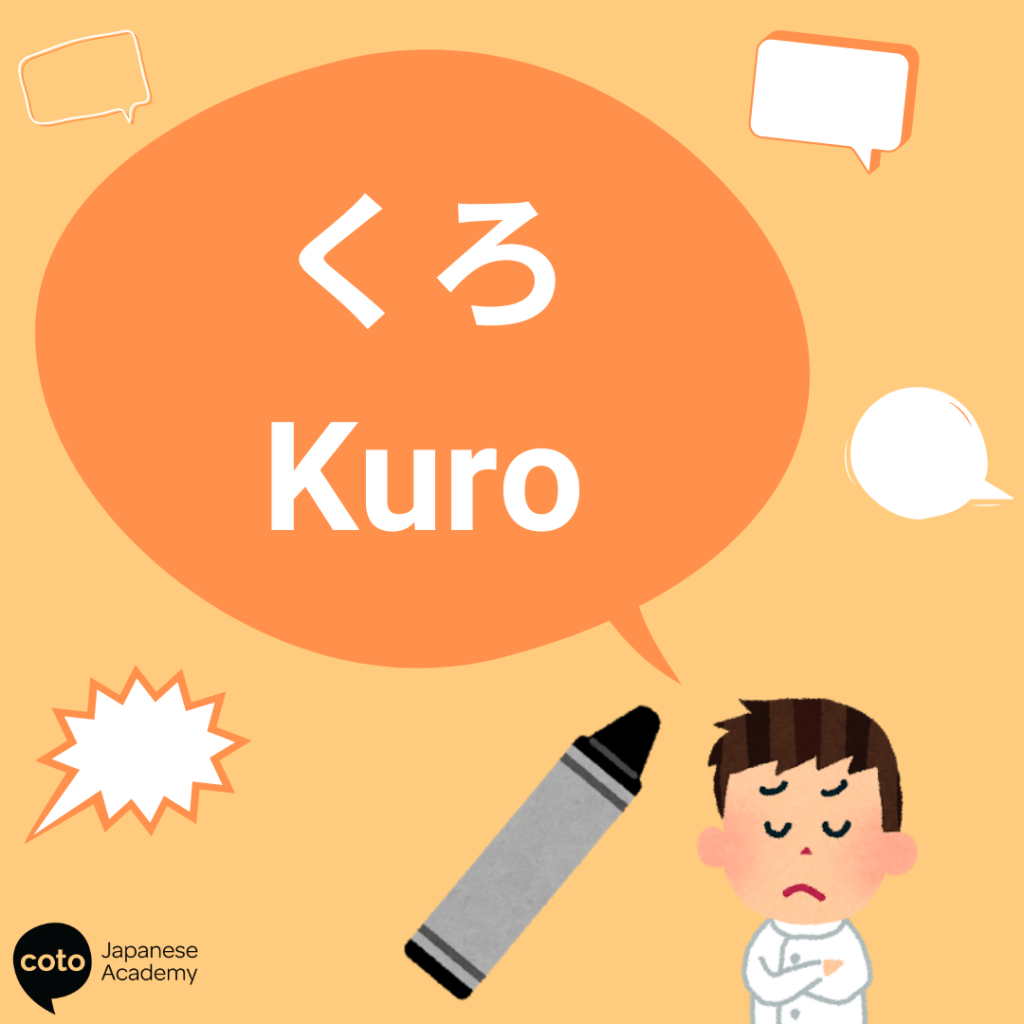
くろ (Kuro) means “black” in English and can also be used to describe a “guilty” person.
10. そば Soba
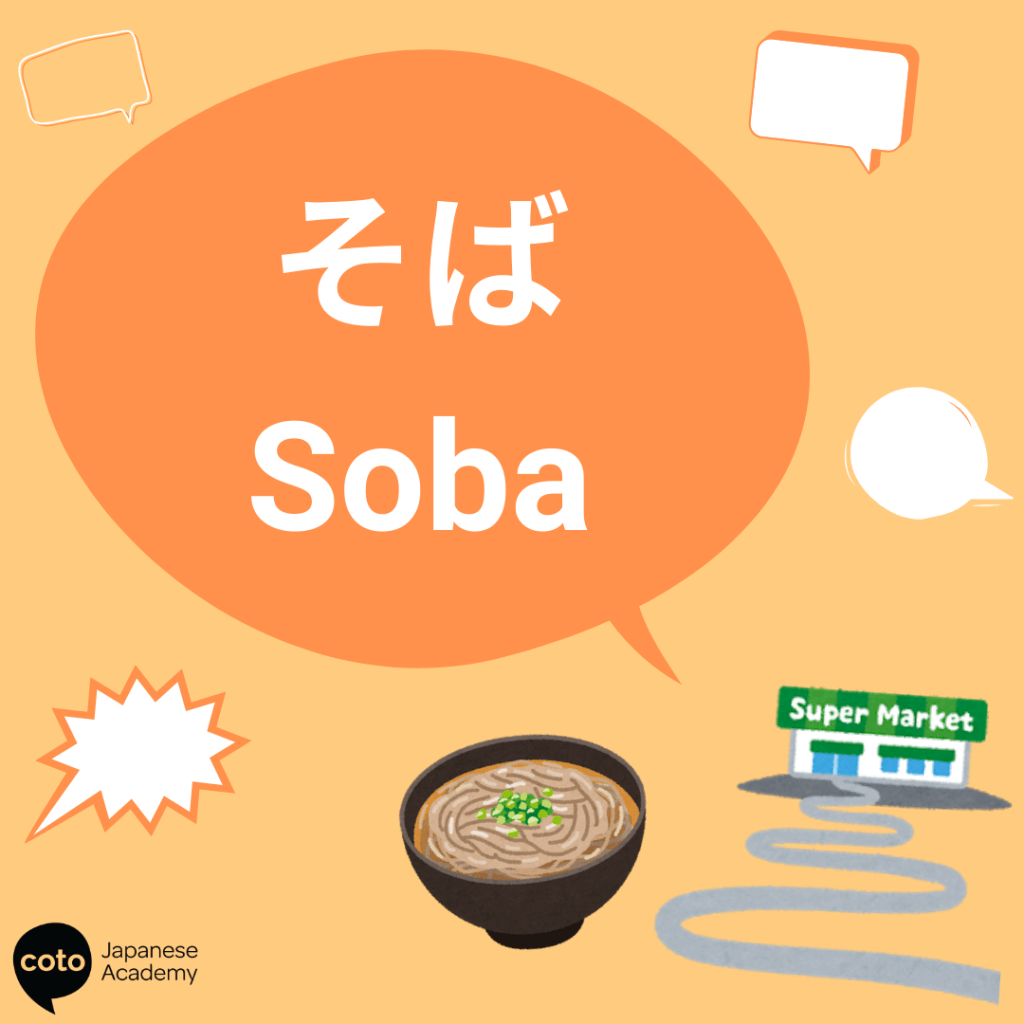
そば (Soba) is often known as the noodle “soba”, but it also means “nearby”!
